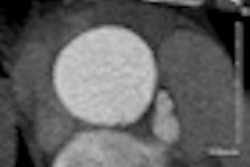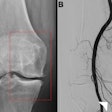A study presented this week at the Society of Interventional Radiology (SIR) annual meeting in Chicago shows that angioplasty could have a future as a treatment option for patients with multiple sclerosis (MS).
In the retrospective study, 231 MS patients (147 women, 84 men; age range: 25-70 years) underwent angioplasty of the internal jugular and azygos veins with or without placement of a stent, according to study co-author Dr. Kenneth Mandato, an interventional radiologist at Albany Medical Center.
The results showed that 97% of the MS patients were treated without incident and with only a minimal risk of significant complication when angioplasty was performed in the hospital or on an outpatient basis. Complications from angioplasty included abnormal heart rhythm in three patients and the immediate renarrowing of treated veins in four patients. All but two of the patients were discharged within three hours of receiving the procedure.
Study co-author Dr. Gary Siskin, chair of the radiology department at Albany Medical Center and co-chair of the SIR research panel on MS, said angioplasty is an entirely new approach to treating patients with neurologic conditions such as multiple sclerosis.
"The idea that there may be a venous component that causes some symptoms in patients with MS is a radical departure from current medical thinking," he added. "As a result, there is a healthy level of skepticism in both the neurology and interventional radiology communities about the condition, the treatment, and the outcomes."
SIR's position statement agrees with MS advocates, doctors, and other caregivers that the use of any treatment in MS patients should be based on an individualized assessment of the patient's disease status, his or her tolerance of previous therapies, the particular treatment's scientific plausibility, and the strength and methodological quality of its supporting clinical evidence.
While the use of angioplasty and stents cannot yet be endorsed as a routine clinical treatment for MS, SIR agrees that the preliminary research is promising and supports studies aimed at understanding the role of chronic cerebrospinal venous insufficiency in MS, identifying methods to screen for the condition, and designing protocols for exploratory therapeutic trials.



















